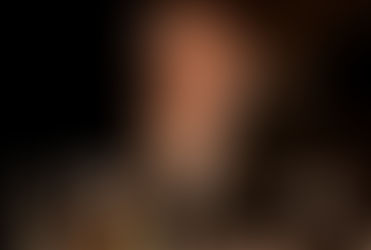Dublin Theatre Festival 2017: Come Away With Me to the End of the World
- Chris ORourke
- Oct 1, 2017
- 3 min read

***
Death by Mindfulness
There’s a term in business circles, ‘death by PowerPoint,’ referring to when audiences are made to endure overly long and elaborate PowerPoint presentations. More recently, the phrase ‘death by mindfulness’ has entered the lexicon, describing the trainers new favorite technique; the guided mindfulness exercise. Often replacing the once dreaded icebreaker, trainers ensure participants must all partake of moments of mindfulness, the panacea for all our ills, at any point the trainer sees fit. In both cases, the will to live is often tested, as is the ability to stay conscious. Seeming to embrace both of these approaches, with PowerPoint slides being replaced by a steady flow of self aware declarations, “Come Away With Me to the End of the World,” by Australian company Ranters Theatre, sets out to offer a post-dramatic, self imposed quest through actual and dreamed selves and our own mortality. And the legendary Greek warbler Demis Roussos. Yet what ultimately emerges is far less engaging than the blurb would seem to suggest.
Looking like participants on a Mindfulness Wellbeing Retreat, performers Heather Bolton, Beth Buchanan, and Patrick Moffat, lounge about in the forest, with a platter of fruit, navel gazing on their own first world problems. Meanwhile, ambient music and bird song reinforce the tone. For ninety minutes each member shares whatever piece of mind lint is currently obsessing them. All the while all three cast members talk in a level, mantra like tone, looking directly at the audience, beaming soft, knowing smiles. Time passes, trees appear and disappear, dancers dance a tarantella and leave, campfires are enjoyed in the mountains, but nothing ever changes. Demis Roussos might give us a song, but by then the gag feels too weak to bring it anywhere really entertaining or interesting.
“Come Away With Me to the End of the World” aspires to explore themes of mortality and of the passing of time on the self. Yet in the end it feels too much like being trapped on a long distance train journey with a bunch of smiley, happy, soft spoken hipsters, regaling you, and each other, with insipid insights and self-referential stories. You know they’re probably good people. You really want to be able to engage with what they’re saying. But talk of their desires to be self-aware somnambulists, or the joys of their tarantella lessons, all revolve around one common theme: them self fascinating about themselves. Which their post-dramatic frame only further emphasizes.
Theatrically, “Come Away With Me to the End of the World’s” post-dramatic approach is pretty standard stuff. A set design, by Callum Morton, with its forest painted on a canvas, and cardboard cut-out mountains, looking like it was left over from a primary school play, is clever and playful. Performatively, the cast resort to many obvious post-dramatic devices as an easy fix, making it feel durational at ninety minutes; a monotone, mantra like delivery; staring directly at the audience, creating a ‘them watching us watching them’ vibe and making voyeurs of us all; texts comprised of long litanies of likes and dislikes padded out with personal anecdotes. It might aspire to set out a series of juxtaposed moments that inform and develop, but the experience is more like living the same moment over and over.
Even so, there’s a genuine sense of warmth and heart to “Come Away With Me to the End of the World,” a sense of a genuinely charming bunch of likeable people trying to say something life affirming. But it soon becomes lost in its own self-reference and comes up short. Rather than looking to make a moment in the face of mortality, “Come Away With Me to the End of the World,” seems more concerned with making a memory of the moment. Meanwhile the moment slips by. Still, those who like a little mindfulness served up with their post-dramatic theatre might well find things to enjoy here.
“Come Away With Me to the End of the World,” by Ranters Theatre runs at the Samuel Beckett Theatre as part of Dublin Theatre Festival 2017 until October 1st
For more information, visit The Samuel Beckett Theatre or Dublin Theatre Festival 2017





















